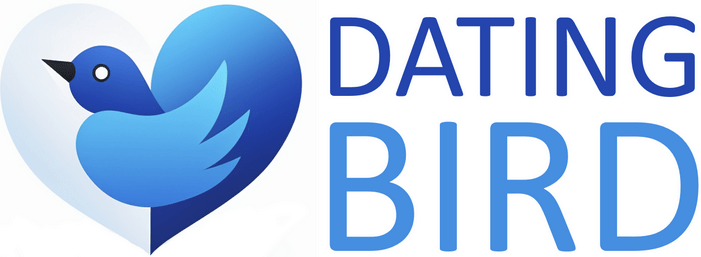Keeping the spark alive in a long-term relationship isn't always a walk in the park - it's more like a thrilling rollercoaster ride. Now, imagine riding that rollercoaster with a disability. It adds a different layer of complexity, right? But don't fret, because that's what we're here for. In this article, we're diving into the world of long-term relationship advice for those with disabilities. We're going to explore practical tips, golden rules, and the secrets to keeping the flame burning brightly, no matter what life throws at you. The essence of this article? To provide you with the best long-term relationship advice for disabled individuals. So, are you ready to keep that spark alive? Let's get started!


Summary (TL;DR)
- Understanding and acknowledging the impact of disability on relationships is crucial, including the physical, emotional, social, and psychological challenges that may arise.
- Communication is key to maintaining a healthy relationship, involving open dialogue, expressing feelings, discussing needs, and active listening.
- Adaptability is essential in dealing with changes that disability can bring, such as adjusting routines, exploring new activities, and maintaining a positive attitude.
- Intimacy, both physical and emotional, remains vital in a long-term relationship, and disabled couples may need to explore creative ways to maintain this connection.
- Seeking professional help can be beneficial, especially when facing difficulties in maintaining the relationship's dynamics, and it's important to find the right professional and overcome any associated stigma.
- Embracing positivity, including practising gratitude, celebrating small victories, and fostering a hopeful mindset, can greatly contribute to keeping the spark alive in long-term relationships for those with disabilities.
Our recommendations
IDEAL FOR QUICK, SPONTAENOUS MEETS
Trusted platform for meaningful relationships
- Large worldwide user base increasing variety of potential matches
- Diverse features catering to different interaction styles
- Trustful and well known operator
Scientific approach to long-lasting relationships
- Matches are based on key dimensions of compatibility ensuring lasting connections
- A comprehensive and meticulous sign-up process that increases chances of genuine matches
- Widely recognised and trusted in the dating world
Embrace Love in the Golden Years
- Specifically designed for singles over 50, making it easier to find like-minded partners
- Simple, easy-to-use interface with a wide range of features such as flirts, favourites and virtual gifts
- Organized events available for members to meet in person in a relaxing environment
Table of contents

Understanding the Impact of Disability on Relationships
Do you know what it's like to run a marathon with a pebble in your shoe? It's not just about the physical discomfort, is it? It's the emotional frustration, the social awkwardness, and the psychological challenges that can turn a pebble into a mountain. Now, imagine that the pebble is a disability. It's not just an inconvenience, it's a daily battle. But hey, who said love was a walk in the park? Let's delve into understanding the impact of disability on relationships.
Physical challenges are the most visible, yet only the tip of the iceberg. From mobility issues to chronic pain, these can change the dynamics of a relationship. Long-term relationship advice for disabled individuals often starts here: adapting to these challenges together. But remember, it's not just about ramps and adjusted routines.
Emotional challenges can be a bit trickier. Frustration, guilt, fear - these emotions can sneak into the relationship like uninvited guests. It's important to remember, though, that these feelings are normal. It's how we deal with them that counts. And yes, sometimes it can feel like navigating a minefield in the dark. But isn't that the essence of any relationship?
Then there are the social challenges. Ever felt like you're on display when you're out with your partner? Or maybe you've had to deal with the whispers, the stares, the well-meaning yet misguided advice. It's like being in a fishbowl, isn't it? But here's the thing - people will always have an opinion. The trick is to remember that the only opinion that matters in your relationship is yours.
The psychological challenges can be the most daunting. Adjusting to a new normal, dealing with the uncertainty, trying to keep the spark alive amidst all the chaos - it can be overwhelming. But remember, you're not alone.
"The most important piece of long-term relationship advice for disabled individuals and their partners is this: you're in it together, for better or worse."
So, understanding the impact of disability on relationships isn't just about acknowledging the challenges. It's about facing them head-on, hand in hand. Ready for the next step? Let's talk about communication, the magical glue that holds relationships together. But that's a story for another day. Stay with us!
Communication: The Key to a Healthy Relationship
Alright, let's dive right into the heart of the matter - communication. It's the bread and butter of any relationship, the secret sauce that keeps the magic alive. But when it comes to long-term relationship advice for disabled individuals, the importance of communication takes on a whole new meaning.
You see, when we're dealing with disabilities, there can be a whole host of unspoken needs, desires, and fears that can easily get swept under the rug. And that's where the power of communication comes in. It's like a torchlight in the dark, helping us navigate the labyrinth of emotions and expectations that come with every relationship.
An open dialogue is the first step. It's all about being honest with your partner about your feelings, needs, and concerns. It's not always easy, but hey, who ever said love was a smooth ride? And the beauty of it is, when you start expressing your feelings, you're not just opening up a conversation - you're opening up a whole new world of understanding and empathy.
Discussing needs is a vital part of this journey. Whether it's the need for physical assistance, emotional support, or just a shoulder to lean on during those tough days, it's essential to let your partner know. Remember, they're not mind-readers (unless, of course, they've got some superpowers we don't know about!).
Now, let's talk about active listening. It's not just about hearing what your partner is saying, but really understanding it. It's about putting yourself in their shoes and seeing the world from their perspective. It's about acknowledging their feelings and validating their experiences.
In the grand scheme of things, communication is the thread that weaves through every aspect of a relationship. It's the cornerstone of understanding, the foundation of trust, and the lifeline that keeps the spark alive. So, keep talking, keep listening, and remember - communication is not just a skill, it's an art.
So, now that we've got the basics covered, how do we actually improve communication in a relationship? Well, that's a question for another day. Keep reading, and you might just find out!
How to Improve Communication in a Relationship
Alright, let's dive straight into the nitty-gritty of improving communication in a relationship. Remember, it's not rocket science, it's about being present, attentive, and above all, patient.
First off, let's talk about active listening. It's not just about hearing words, it's about understanding their meaning, their emotion and the sentiment behind them. Think of it as trying to read a book while someone keeps flipping the pages. Frustrating, isn't it? That's how your partner might feel if you're not truly listening. So, next time they speak, give them your full attention, acknowledge their feelings, and respond thoughtfully.
Next up, expressing needs. This can be a tricky one. It requires courage to voice your needs and desires, but it's essential for a healthy relationship. If you're feeling unheard or unappreciated, don't keep it bottled up. Speak up, but remember to do so respectfully and constructively.
Now, you might be wondering, "What about when words fail us?" That's where non-verbal communication comes in. It's the unsaid words, the tender look, the comforting touch, the warm hug. Sometimes, actions really do speak louder than words.
Finally, let's not forget patience and understanding. No one's perfect, and we all make mistakes. So, give your partner the benefit of the doubt, be patient with their shortcomings, and be understanding of their feelings.
In essence, improving communication is like learning a new language. It takes time, practice, and a whole lot of patience. But don't worry, you've got this! Stick with it, and you'll be fluent in no time.
And speaking of sticking with it, our next topic is all about adapting to changes. So, buckle up and get ready to embrace the art of flexibility.
"Improving communication is like learning a new language. It takes time, practice, and a whole lot of patience."

Adapting to Changes: The Art of Flexibility
Life, as we know it, is a rollercoaster of changes, right? Well, add a disability into the mix, and you've got yourself a theme park. But fear not! Here's some long-term relationship advice for disabled folk to turn that rollercoaster into a gentle carousel ride.
Firstly, let's talk about routine. Now, we humans are creatures of habit. We love our routines and the comfort they bring. But sometimes, life throws a spanner in the works and our routines have to change. For those with disabilities, these changes can be even more significant. But here's the thing: it's OK! Adjusting routines is just like getting a new haircut. It feels weird at first, but soon, you can't even remember what you looked like before.
Next, let's explore new activities. Remember when you tried sushi for the first time and discovered a whole new world of cuisine? It's the same principle. Exploring new activities that are accessible and enjoyable can open up a whole new world of shared experiences. It's like adding a dash of spice to your relationship.
Embracing changes can feel like trying to hug a cactus at times, but trust me, it's possible! It's all about viewing these changes as opportunities rather than obstacles. Think of it like this: every change is a chance to learn something new about yourself and your partner. It's like opening a new chapter in your relationship book.
Finally, let's talk about positivity. It's like the cherry on top of your relationship sundae. Staying positive in the face of adversity can be challenging, but it's essential for keeping that spark alive. It's like keeping the fire burning on a cold winter's night.
So, there you have it! That's the art of flexibility in a nutshell. Now, let's move on to some practical tips for adapting to changes, shall we? It's like having your very own toolkit for relationship maintenance. Are you ready? Let's dive in!
Practical Tips for Adapting to Changes
Change. It's inevitable, isn't it? Just like that pesky rain on a bank holiday. But, let's face it, change can be a right handful, especially when it seeps into our relationships. But, as we always say in the world of Long-term Relationship Advice for Disabled, change is not necessarily a bad thing. It could be a chance to rekindle that spark, to shake things up a bit. So, how do we do that? Let's delve into some practical tips for adapting to changes.
Embrace new routines: Sometimes, your old routines might not cut it anymore. Well, no problem! You might need to adjust your routines to suit your current circumstances. Think of it as changing the furniture around; it's still your lovely living room, just a bit different. And who knows? You might even find it more comfortable!
Explore accessible activities: You might not be able to do all the things you used to do, but that does not mean you can't have fun. There are plenty of accessible activities out there. Have you tried wheelchair basketball? Or perhaps a bit of adaptive yoga? Keep exploring and keep the fun alive!
Stay positive: Yes, easier said than done, we know. But maintaining a positive attitude is like a secret weapon in your arsenal of Long-term Relationship Advice for Disabled. It helps you adapt to changes and keep that spark glowing. So, chin up and keep smiling!
"Change is not a roadblock but a detour to a potentially exciting route."
That's it for our section on adapting to changes. Up next, we'll be diving into the intimate side of things. Yes, you guessed it. It's about maintaining intimacy in a long-term relationship. So, ready to explore this new terrain? Let's keep the journey going!
Maintaining Intimacy: Long-term Relationship Advice for Disabled
Alright, buckle up! We're about to venture into a topic that often gets brushed under the rug, but is crucial for any long-term relationship: maintaining intimacy.
Now, when we talk about intimacy, what springs to your mind? Is it just physical closeness? Well, you're not entirely off the mark, but intimacy, my dear friends, goes much deeper than that. It's a mix of physical and emotional closeness, a connection that makes you feel like you're on the same wavelength with your partner.
In the context of long-term relationship advice for disabled individuals, understanding and maintaining intimacy can be a bit of a puzzle. But hey, who doesn't love a good puzzle, right?
Physical intimacy is often misconstrued to be just about the bedroom antics, but it's so much more. It's about those tender moments of touch, a comforting hug, holding hands, or simply a reassuring pat on the back. All these little gestures contribute to creating a bond that's as strong as a cup of British tea - robust, comforting, and warm.
On the other hand, emotional intimacy is about being in tune with each other's feelings. It's feeling safe enough to share your deepest fears, greatest joys, and even the silliest jokes. It's about understanding, respecting, and valuing each other's emotional space.
Now, maintaining intimacy, especially for individuals with disabilities, can require some creativity. But isn't that what makes life interesting? You might need to find new ways to express physical closeness or discover different methods to communicate your emotions, but remember, it's all part of the journey.
As we navigate through this, remember, there's no one-size-fits-all approach. What works for one couple might not work for another. But fret not! In the next section, we'll be sharing some tips to help you maintain intimacy in your relationship. So, ready for some tried and tested long-term relationship advice for disabled individuals? Let's dive right in!
Tips for Maintaining Intimacy in a Relationship
Let's be real here, maintaining intimacy in a relationship is a bit like tending to a well-loved garden - it requires effort, patience, and a pinch (or two) of creativity. But hey, who said gardens don't thrive in winter? They do, with the right care. So, here are a few concrete tips to keep the flame alive and burning, ideal long-term relationship advice for disabled individuals.
1. Explore New Ways of Physical Intimacy:
Intimacy isn't just about the horizontal tango, folks. It's about touch, closeness, and connection. Have you ever tried holding hands while watching your favourite series or giving each other a gentle massage? Trust me, these simple acts can speak volumes.
2. Foster Emotional Closeness:
Remember the first time you fell for your partner? The butterflies, the excitement, the shared secrets? Well, it's time to bring it back! Share your fears, dreams, and even your daily mundane experiences. Emotional intimacy is all about being open and vulnerable.
3. Maintain Mutual Respect:
Here's some serious long-term relationship advice for disabled couples - respect is non-negotiable. It's the backbone of any relationship. So, respect each other's boundaries, feelings, and most importantly, the challenges that come with a disability.
"In the dance of love, the steps of respect and understanding lead to the rhythm of intimacy."
Remember, intimacy isn't a destination, but a journey that you and your partner embark on together. So, buckle up, enjoy the ride, and don't be afraid to take a few detours along the way. After all, isn't life all about exploring and experiencing?
Next up, we'll delve into when and why you might consider seeking professional help. Not because you can't do this on your own, but because sometimes, an outside perspective can offer invaluable insights. So, shall we proceed?
Seeking Professional Help: When and Why?
Navigating through the maze of long-term relationships can sometimes feel like trying to solve a Rubik's cube blindfolded. Now, add disabilities into the mix, and you've got yourself a challenge that would even make Einstein scratch his head. But here's the good news: You're not alone. There are professionals who can help. So, when should you seek professional help and why?
Seeking professional help isn't a sign of weakness; it's a sign of strength. It shows you're committed to your relationship and willing to take necessary steps to keep the spark alive. If you've hit a roadblock in communication, intimacy, or adapting to changes, it might be time to bring in the cavalry.
Professional advice can offer a fresh perspective, and a trained eye can spot patterns or issues that you might overlook. Think of it like having a personal trainer for your relationship muscles. And let's face it, who wouldn't want a bit of help lifting those heavy emotional weights?
Finding the right professional can be a bit like dating. It might take a few tries before you find the one that fits. But when you do, it's relationship magic.
Now, let's address the elephant in the room: stigma. It's 2022, folks! Seeking therapy is as normal as having a cup of tea. It's all about self-improvement and growth. So, let's chuck that stigma out the window, shall we?
"Remember, seeking professional help isn't a sign of weakness; it's a sign of strength."
Next, we'll be exploring how to find the right professional help. So, stay tuned, but remember, there's no rush. This is your journey, and it's all about finding the right pace for you.
How to Find the Right Professional Help
Navigating the seas of professional help can feel like trying to find a single fish in the Atlantic, but fear not! I'm here to make the process simpler. Let's dive into some practical advice for finding the right professional help, tailored to long-term relationship advice for disabled individuals.
1. Research, Research, and Research Some More
There's no shortcut to this step, I'm afraid. But hey, who said a little detective work couldn't be fun? Start by looking into different types of professionals who specialize in relationship advice for disabled individuals. This could include therapists, counsellors, or even life coaches.
2. Consider Online Therapy
In our digital age, physical limitations don't have to stop you from getting the help you need. Online therapy platforms have been a game-changer, offering services ranging from counselling to cognitive behavioural therapy.
3. Overcome Stigma
Stigma can be the invisible chain that stops you from seeking help. But remember, seeking help is not a sign of weakness, but a testament to your strength. Isn't it time we kicked stigma to the curb?
"Remember, seeking help is not a sign of weakness, but a testament to your strength."
Now that we've tackled the task of finding professional help, it's time to shift our focus to something equally important - fostering a positive attitude. As we'll discover in the next section, positivity can be the secret ingredient to keeping that spark alive in long-term relationships for disabled individuals. So, ready to explore the power of positivity? Let's go!
Embracing Positivity: The Power of a Positive Attitude
Have you ever noticed how a person with a positive attitude seems to attract good things like a magnet? Or how a sunny disposition can light up even the gloomiest room? That's the power of positivity, my friend, and it's not just a fancy buzzword.
Positivity is more than just a state of mind; it's an approach to life. It's about focusing on the good, even when life throws you a curveball (or a whole set of them!). And in the context of long-term relationships for disabled individuals, a positive attitude can be the glue that holds everything together.
But wait, you might say, "I'm dealing with a disability here. It's not exactly a walk in the park." Absolutely, and no one's asking you to pretend it is. But here's the thing: fostering a positive mindset isn't about denying the challenges you face. It's about acknowledging them, and then choosing to focus on the victories, however small they might be.
Remember how you felt when you first figured out how to adapt your favourite activity to your new physical reality? Or that moment when you and your partner found a new way to express intimacy, despite the challenges? Those are victories, my friend! And by celebrating these small wins, you're not just boosting your own morale; you're also reminding your partner of the strength and resilience that lies within you.
Staying hopeful may seem tough, especially during trying times. But hope is like a beacon that guides us through the storm. It's the belief that better days are on the horizon, and that together, you and your partner can weather any storm.
So, how does one foster a positive attitude, you ask? Stay tuned, because up next, we've got some practical tips that you can start implementing today. From practising gratitude to celebrating small victories - we've got it all covered. And remember, the most important ingredient in the recipe for a positive mindset is you! So, ready to dive in?
"Positivity is more than just a state of mind; it's an approach to life. It's about focusing on the good, even when life throws you a curveball."
Tips for Fostering a Positive Attitude
Ah, the elixir of life – positivity! It's like a good cup of tea, warming you from the inside, even on a grey British day. So, how can we cultivate this positive attitude? Here are some tips that might just do the trick.
Firstly, practising gratitude is a fantastic place to start. It's all about focusing on the good things in life, however small they may be. Got out of bed today? That's a victory. Managed to brush your teeth? Another win! It's all about perspective, my friends. Every day, try jotting down three things you're grateful for. They don't have to be monumental – even the smallest things count.
Speaking of small things, our next tip is all about celebrating small victories. In the grand scheme of life, it's easy to dismiss these small wins as insignificant. But let me tell you, they're anything but! Every step forward, no matter how small, is a step in the right direction. So, next time you achieve something, no matter how minor, give yourself a pat on the back. You deserve it!
Last but certainly not least, it's important to stay hopeful. Yes, there will be tough days. But remember, after every storm, there's a rainbow. It's okay to have bad days, but don't let them define you. Keep your chin up, keep moving forward, and remember that hope is a powerful tool.
"Positivity isn't about ignoring life's challenges. It's about facing them with the belief that you can overcome."
There you have it! A few simple, yet effective ways to foster a positive attitude. Remember, it's all about perspective and acknowledging your achievements, no matter how small. Now, let's move on to our conclusion – a recap of the long-term relationship advice for disabled individuals and how to keep that spark alive. So, grab your cuppa, and let's wrap this up!
Conclusion: Keeping the Spark Alive in Long-term Relationships for Disabled
In conclusion, maintaining the spark in a long-term relationship, especially for those with disabilities, involves a blend of communication, understanding, mutual respect, and maintaining physical intimacy. Adapting to each other's needs, focusing on strengths rather than weaknesses and seeking professional guidance when necessary can play a significant role. It's important to remember that every relationship has its ups and downs, but with the right approach and dedication, it's possible to keep the spark alive. As a call to action, readers should consider integrating these strategies into their relationship and observe the positive changes that come along. Remember, love is not about perfection but about embracing each other's imperfections.

FAQ
Question: How can a disability impact a long-term relationship?
Question: What is the role of communication in maintaining a healthy relationship when one partner has a disability?
Question: How can couples adapt to changes brought about by disability in a long-term relationship?
Question: What are some tips for maintaining intimacy in a relationship when one partner has a disability?
Question: When and why should couples seek professional help in a long-term relationship where one partner has a disability?
Question: How can a positive attitude help in maintaining a long-term relationship when one partner has a disability?
Question: How can couples keep the spark alive in long-term relationships when one partner has a disability?
Related articles
Articles with related questions
Further information on terms of this article
Written by:
 Emma
Emma is familiar with all topics related to finding a partner.
Emma had met her partner a long time ago on a dating site. Now she shares her experiences on various online dating sites, but especially on Dating-Bird.Not only does she know which dating site is currently the best, but she also loves to give tips on how to use it with a high probability of success. With her psychological background, she always has good advice on love and relationships.
Emma
Emma is familiar with all topics related to finding a partner.
Emma had met her partner a long time ago on a dating site. Now she shares her experiences on various online dating sites, but especially on Dating-Bird.Not only does she know which dating site is currently the best, but she also loves to give tips on how to use it with a high probability of success. With her psychological background, she always has good advice on love and relationships.




